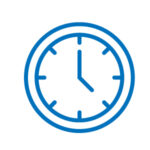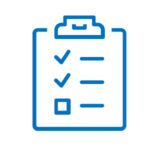Calibration Conundrum: In-House v Certified Specialist Providers
When calibrating laboratory equipment, should you do it in-house or use a certified third-party provider specialising in calibration services?
The accurate and reliable calibration of scientific equipment in your laboratory, such as pipettes, thermometers, centrifuges, weighing scales and balances, and microscopes, is crucial for maintaining quality and ensuring precision in your results.
When it comes to the calibration of your lab equipment, you can choose to either have your own team do it or work with a specialist calibration services provider. Both options have advantages and disadvantages, and the approach you take will depend on the requirements of your organisation. Here, we delve into some factors that should be taken into consideration when deciding how to calibrate your lab equipment.
Skills and Specialist Expertise of Calibration Service Engineers
One significant advantage of utilising a company that specialises in the calibration of laboratory equipment is the expertise and experience of their service engineers. Because they work with a wide range of scientific equipment from various manufacturers, they will have experience in working with different equipment, all of which have their own calibration requirements. Additionally, they will undertake intensive training with the manufacturer of the equipment they are calibrating on a regular basis. Therefore, their specialised knowledge allows them to identify potential issues and provide accurate calibration services, ensuring optimal performance of your equipment.
Cost of Investing in Calibration Equipment and Resources
Maintaining an in-house calibration team requires significant investment in the right test equipment, standards, and resources. Additionally, the cost of training and certifying members of your own team can be substantial and when they leave the company, they take their skills with them. Outsourcing to a certified calibration services provider eliminates these expenses, as they already possess the necessary equipment and expertise. By partnering with an external calibration services company, laboratories can save on the significant costs associated with purchasing and maintaining calibration equipment.
 Turnaround Time in Delivering Calibration Services
Turnaround Time in Delivering Calibration Services
External calibration providers will usually have dedicated facilities and resources solely focused on delivering calibration services. This specialisation enables them to deliver faster turnaround times for calibration projects. With strict deadlines and time-sensitive experiments in laboratories, quick calibration services can significantly minimise downtime and ensure uninterrupted workflows.
Training and Development of Calibration Expertise
Investing in training and developing the skills of an in-house calibration team is an ongoing commitment. Keeping up with evolving calibration techniques, industry standards, and regulatory requirements can be challenging and time-consuming. On the other hand, certified specialist providers of calibration services prioritise continuous training and development of their service engineers to ensure compliance with the latest ISO standards. Additionally, they get access to training by the manufacturers of laboratory equipment. By outsourcing, laboratories can rely on the commitment of the calibration services provider to staying up to date with calibration practices and regulatory requirements.
 Certification and Compliance
Certification and Compliance
ISO standards play a crucial role in maintaining quality and adherence to international calibration standards. Certified calibration providers have undergone rigorous assessments to obtain ISO certification, ensuring their calibration services meet the highest industry standards. Therefore, partnering with an ISO-certified provider gives laboratories the confidence that their equipment is calibrated accurately and consistently, meeting regulatory compliance requirements.
Calibrating Laboratory Equipment – what is right for you?
In conclusion, choosing between in-house calibration and outsourcing to a certified calibration services provider, such as Mason Technology, involves considering various factors. While internal teams may offer convenience, they often come with significant costs, training requirements, and limited exposure to the calibration of a diverse range of laboratory equipment. On the other hand, external calibration service providers bring specialised skills, cost savings, faster turnaround times, ongoing training, and certification to the table. Ultimately, the decision should be based on the unique needs and priorities of the laboratory, keeping in mind the benefits offered by certified specialist providers in terms of expertise, cost-efficiency, and adherence to ISO standards.
If you’d like more information about the Calibration Services we offer, complete the form below and one of our team will get back to you.
Specialist Provider of Calibration Services for Laboratory Equipment
At Mason Technology, we specialise in the calibration of laboratory equipment. Working with clients in pharmaceutical, biopharma, food & beverage, medical devices and clinical healthcare, we offer INAB accredited calibration services from our dedicated Service Support Centre in Dublin and on-site at our client’s facilities. Manufacturer trained in the products we represent, our service engineers work closely with our validation specialists to ensure that equipment is calibrated in line with regulatory requirements. Mason Technology has held INAB (ISO 17025) accreditation since 1994
RECENT POST
Introducing the Eppendorf Research® plus 4-Pack with e...
Apr 24, 2024
NewsMettler Toledo Launches New Generation of Laboratory Ba...
Apr 22, 2024
NewsMason Technology is one of Ireland's Best Workplaces&#x...
Apr 18, 2024
NewsWebinar: Thinking outside the mouse: ex-vivo dissection...
Apr 11, 2024
WebinarsUnderstanding Buffers in Liquid Chromatography
Apr 10, 2024
BlogExploring Texture Analysis in advancing Medical Device ...
Mar 26, 2024
BlogFreeze Drying Adviser Vol.2: Illustrated Toolkit for Ge...
Mar 13, 2024
White PapersSolvents Mixing Ratio in Liquid Chromatography
Mar 06, 2024
Blog
